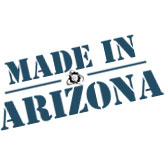by Steve Macias
May 5, 2015
Manufacturing provided a bright spot in Arizona’s economy that helped carry our state through the Great Recession. Now, 2015 looks as if it will be the year that our economy finally starts hitting on all cylinders again and economists agree that manufacturing is poised to be one of the biggest growth industries in Arizona.
But I’m concerned that if some in Washington have their way, the rug could be pulled out from under our economic recovery.
That is because many small and medium manufacturers in Arizona rely on the Export-Import Bank to help them sell their products to overseas customers. Unless Congress acts, the Ex-Im Bank is set to expire on June 30, putting countless jobs at risk. For many businesses coming out of the Great Recession, this would be akin to Andy Dufresne finally about to dig through the last scoop of dirt to freedom out of Shawshank Prison, and discovering to his horror that Warden Norton had back-filled the escape pipe with cement.
Since 1934, when the Ex-Im Bank was founded, it has helped exporters by providing financing and insurance to American companies exporting goods and services. The Bank has and continues to play a critical role, ensuring that goods stamped “Made in America” are available across the globe.
While no government agency is perfect, Ex-Im should be held up as a model of a government program that works. Since 2007, Ex-Im has supported $291 billion in exports. Ninety percent of its transactions have benefited small and medium size businesses. Many of those businesses wouldn’t be able to access the global marketplace without Ex-Im’s support. Because Ex-Im is financed by interest payments and user fees, it doesn’t cost taxpayers a dime. In fact, over the past several years, Ex-Im has returned $2.7 billion to the U.S. Treasury, which has helped reduce the federal deficit.
Gilbert-based Competitive Engineering, Inc., which produces environmentally sustainable fertilizers that revitalize soils and grow healthy crops, was a company of 10 employees five years ago. Thanks to the help from Ex-Im, they have been able to compete with some of the largest agriculture companies in the world, and have expanded to over 40 employees today as they sell their products around the globe.
Phoenix’s ServerLift moved its manufacturing from China to the United States, doubling the number of U.S. employees, thanks in part to Ex-Im’s support for American-made goods.
These are just two examples of Arizona success stories, where small businesses were able to create American jobs thanks to Ex-Im’s support. These kinds of success stories are why Ex-Im has enjoyed broad, bi-partisan support. Republicans such as New Mexico Gov. Susana Martinez and Oklahoma Gov. Mary Fallin have been among the strongest advocates for reauthorizing the Bank because they know it works. Conservative luminary Hugh Hewitt has been a forceful voice calling for the Bank’s reauthorization.
The Bank’s opponents say that Ex-Im isn’t necessary, that the private sector should fill the role of the Ex-Im Bank. But the Ex-Im is barred from competing against the private sector. Its resources can only be used after commercial financing has been proven to be unavailable.
If the Ex-Im shutters, countries around the world are ready to fill the gap to the benefit of their companies and to the detriment of U.S. companies. European and Asian countries provide much greater export financing and in some cases direct subsidies to their companies. We don’t want to give our foreign competitors a huge advantage, resulting in businesses and jobs moving overseas.
I’m hopeful that Arizona’s delegation and the rest of Congress won’t pull the rug out from under Arizona manufacturers. We need to reauthorize the Export-Import Bank.
Steve Macias is the president of Pivot Manufacturing and the chairman of the Arizona Manufacturers Council

